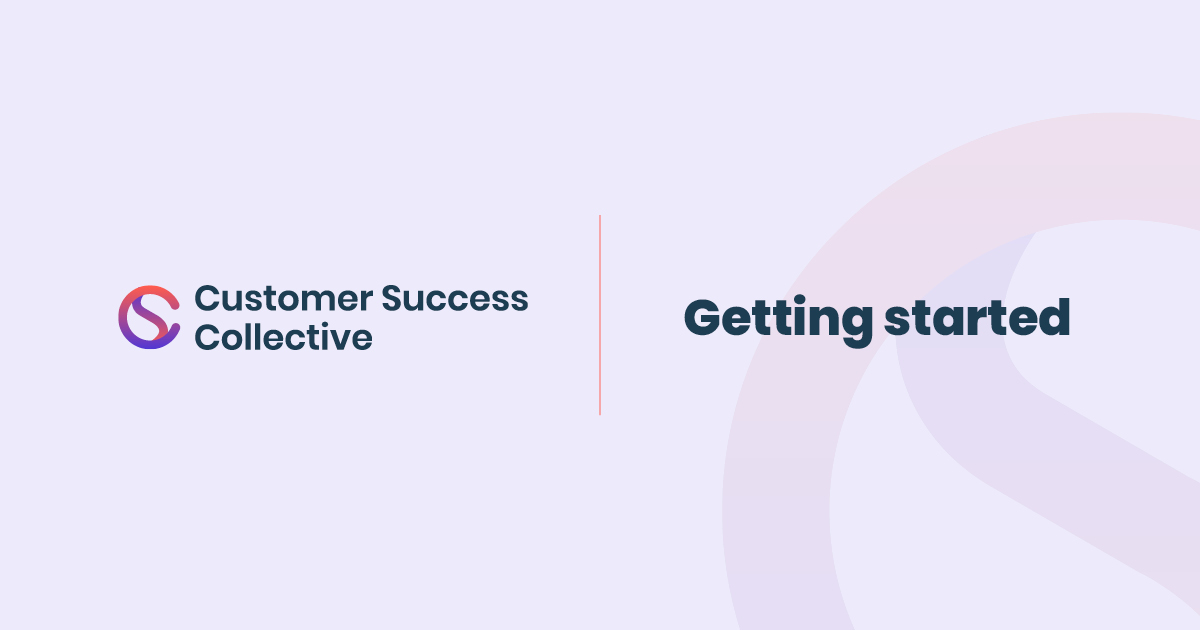“How do I get into customer success?”. This is a common question that I hear all the time. It’s not surprising as the profession of customer success (CS) has grown exponentially in the last 5 years and was ranked 6th on LinkedIn’s 2020 Emerging Jobs Report. This isn’t a silicon valley thing or even a North American niche role. Customer success has become a global phenomenon and it’s here to stay. A LinkedIn job search on “customer success” in the United States returns over 140,000 open roles.
After successfully helping a number of talented individuals break into the customer success profession I wanted to share my advice. Yes, there are thousands of customer success roles out there for the taking. Yes, customer success roles are even more accessible with the movement of companies to go fully remote. The challenge is that customer success is also broad and ill-defined.
In addition, recruiters have little appreciation for what applicants without customer success in their title can bring to a company. Getting your foot in the door is more than just changing your resume to highlight your customer-facing experience. There are specific steps you can take that will significantly increase your chances of landing your first role and this post will provide tangible advice that has helped others.
The #1 tip to get your first customer success role
A typical approach to job searching is to list out the companies you want to work for and then look for open roles that you want to apply to. Another approach may be to look for open customer success manager (CSM) roles. These approaches may work for those with some experience but they are not recommended for those wanting to break into customer success.
You should start off by going through your resume or your LinkedIn profile and determining which industries or professions you have experience in.
For example, have you volunteered at any non-profits? Have you worked in the media, education, or travel industry? Have you worked in the marketing, sales, or finance functions? Create a list of these areas that you have experience in.
Put a star beside the ones that you have the most experience with. Next, look for software companies (as they tend to have a customer success function) that serve the industry and/or function that you have the most experience in. Finally, look for open customer success roles that they may have.
If you have experience in an industry or function that a company serves, you have a leg up on other people that may be applying. You know that world. You understand what those customers are going through. You can use that knowledge and experience to your advantage in your CS job search but that alone won’t get you the interview. You need to work your network.

Network and join customer success communities
This is a more obvious tip — build and work your network to help you get interviews. What isn’t obvious is that most people do this first without first identifying the industries and functions they have experience in.
This first step shouldn’t be skipped over.
Find the companies that will be best suited for you and then leverage your network to get connected to those companies. Look to see which of your LinkedIn connections works in any of these companies or has connections with people at these companies. Ask them for introductions or if they can send on your resume with an endorsement. You can even request that they help you setup informational interviews. In this way when you reach out for help, you are specific in your asks and your outcomes. You will also have a much higher chance of being interviewed.
It’s also recommended that you join some of the great customer success communities out there so you can start to network with other CS professionals directly.
Don’t be passive in these communities. Ask questions and ask for assistance. Highlight some content that you’ve just read or watched. The customer success community loves to help others — it’s in our nature! Use that to your advantage and build your network. Let people know that you are looking and be specific in the companies you want to target based on your experience.
Take courses in customer success
Investing in customer success courses is one of the smartest things you can do. You can never go wrong by investing in yourself. Customer success is continually changing and there are great courses out there that incorporate the best learnings into digestible courses.
By taking courses, you are gaining knowledge on how to be an effective customer success manager and you are also showing your prospective employer that you have a strong desire to learn. It can also help you build and grow your network.
You may also want to consider taking some technical courses or joining a coding bootcamp. Many SaaS companies have highly technical products and having a good understanding of how the products work can only better help guide your clients as a Customer Success Manager (CSM). After completing university I went back to school and completed a post-grad diploma in applied information technology which included front end and back end coding and database fundamentals.
Be OK with taking a step back
You may be looking at customer success as a way to taking a step up in your career but it may require you to first take a step back. You may be shifting your career from areas such as sales, engineering, or another profession where you have more experience. This will typically mean that you may be earning less when you start in customer success. You may also be coming from a profession where you have years of experience and have to start over again. You need to be ok with this. It’s not easy but it will be worth it.
You should also consider starting off in customer support or business development at a start-up. It may not be feasible for you to jump right into customer success. Consider taking an entry-level role to gain more experience and to help work your way into a customer success role.
Taking a step back in your career requires you to swallow your pride and think of your longer-term goals. There are many times in my own career where I’ve taken pay cuts or taken a lower title as I could see the long-term gains of the role I was taking on and the company I was joining. As mentioned earlier, your first role in customer success may not be the perfect role either but it will get you a foot in the door that you can build your career off of.

Final tip: don’t give up
Breaking into customer success can seem like a maze with no clear exit. The challenge is that each company has slightly different criteria for what they are looking for in a CSM and there isn’t a clear blueprint. Some require more technical skills, some require more sales skills, some don’t require prior customer success experience and others will look for people with years of industry experience.
It’s still very much the wild west. If you weren’t selected for certain roles, keep searching and apply for others. Try and find out why you didn’t get the role so you can change your interview approach or refine the type of CS roles you should be applying for. If you are passionate about customer success, don’t give up. It may take some time before you land your first role but if you have the passion you will find your role.
After you have identified the industries and functions that you have experience in and identified the possible companies that are hiring for CSMs (or other CS roles), leveraged your network to help you land an interview, and beefed up your experience by taking some CS-related courses you have put yourself in a better position to nab that first CS role of your career.
This won’t be easy but if you demonstrate passion and determination, companies will take notice as those are key skills needed to be successful in customer success. I wish you the best of luck and would love to hear if you have found this advice successful as well as any other tips you recommend.


